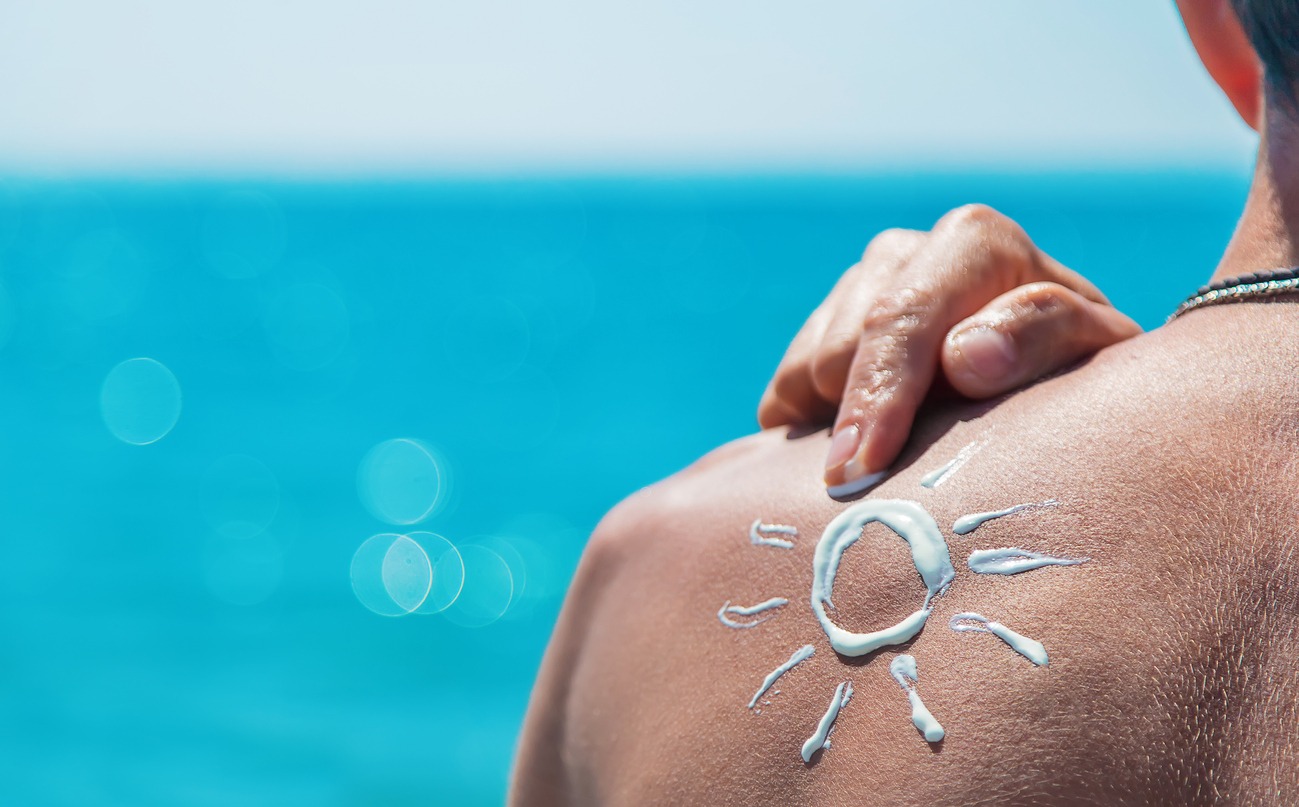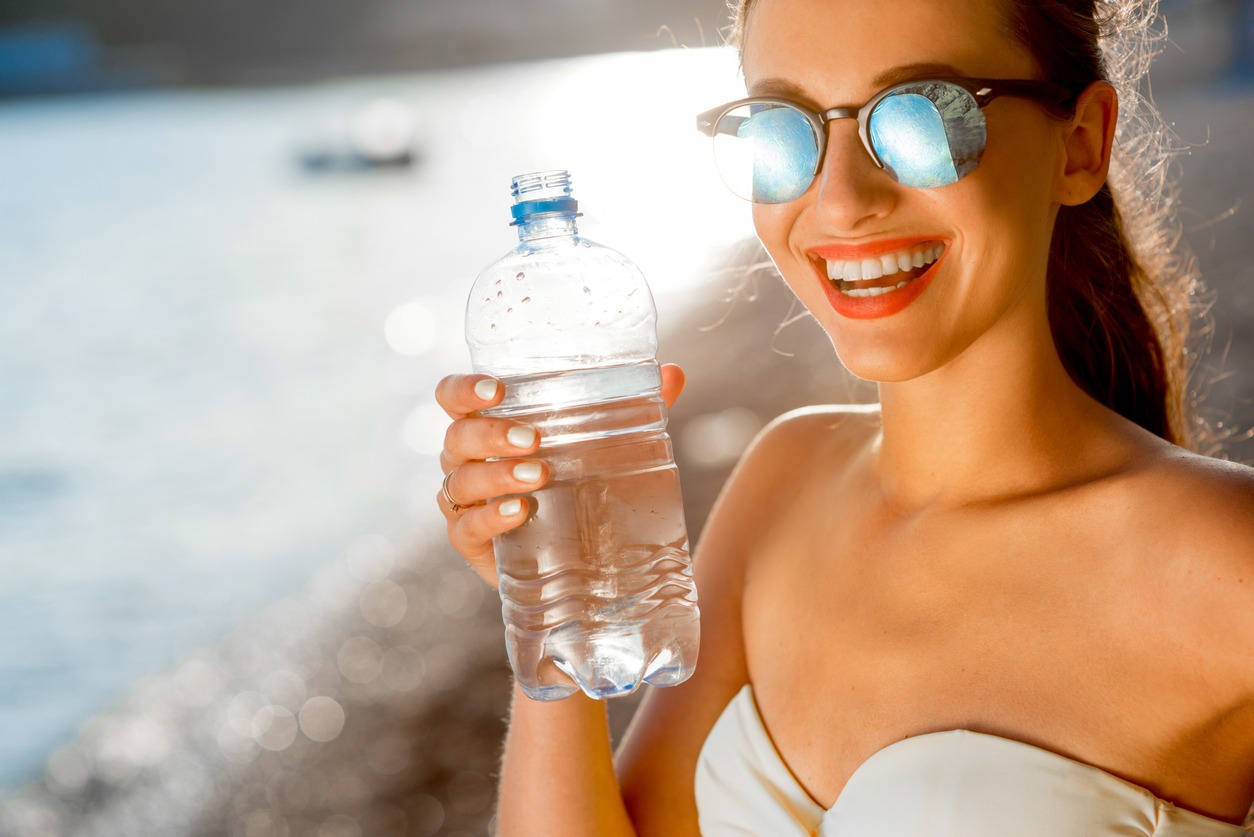Swimming is without a doubt one of the best and most enjoyable exercises. Additionally, the requirement of visiting a beach or pool adds a little bit extra excitement. Nothing is more enjoyable and soothing during the summer than spending time by the lake, soaking in the rays, salt, sand, and winds. When you go to the beach or pool, you typically consider what snacks and beverages to carry, what clothes and suits to wear, and how to get there without being stuck in traffic.
However, entering a pool that has been chlorinated exposes your skin to allergens and toxins. You run the danger of becoming sunburned and having your skin dried out when you visit a sunny beach. While at the beach or pool, you should always keep your skin moisturized and hydrated. Here are some recommendations for maintaining skin moisture:
1. Take care of your skin before the vacation
Avoid items that dry out your skin or make you more susceptible to sunlight in the days or weeks leading up to your trip. Before your journey, moisturize your skin frequently. Use extra before flying because air travel can quickly dry out skin.
2. Protect your skin and hair by wearing a hat or a sundress and using an umbrella
Long-term sun exposure not only results in tanning and sunburn, but also in the skin being dehydrated, which hastens the aging process. While it’s enjoyable to spend some time in the sun, avoid doing so for too long without protection. Get a hat, cover up, or hunker down under an umbrella. Here is a guide to help you identify the best beach umbrellas for shielding your skin from the sun.
Wear a sundress or long, loose slacks and a summer top with sleeves if you plan to relax in the sun in a hammock or lounge chair. You can stay comfortable and limit direct sun exposure by wearing lightweight clothing. Choose an area with an umbrella for your hangout because it will give you a cool, shaded place to relax in between activities. To avoid sunburns and heat exhaustion, seek out some shade.
The sun can harm the top of your head as well as your hair. One of the hardest areas to spot skin cancer symptoms is on the scalp. Wear a cap to make sure this area is shielded and covered. A stylish option that can shield your eyes, face, and neck from the sun’s harmful rays is a wide-brimmed summer hat. Use a swim cap to match your outfit if you swim or are wearing sports swimwear.
3. Pick an appropriate sunscreen
Applying sunscreen is a crucial step in maintaining the moisture and hydration of your skin while exposed to the sun. Your skin retains more moisture when it is protected, keeping it healthy. The American Cancer Society recommends an SPF of 15 for everyday use and 30 or higher for prolonged exposure. You should use sunscreen with an SPF of 50 or higher on your face when spending time at the beach or pool to help avoid premature aging and burns. Since baby sunscreen frequently provides a higher level of protection, is manufactured with kinder ingredients, and is occasionally less expensive than adult sunscreen, you might even want to use it.
4. Apply sunscreen everywhere
What part of your body do you apply sunscreen on before going swimming? Most individuals only apply it to their faces, necks, arms, legs, and upper bodies. Don’t overlook the following regions, though:
Ears – Ears are exposed to the sun’s rays directly. Because it’s simple to miss, most people who go swimming and spend time in the sun end up with red, burned ears.
Hands, feet, toes, fingers – Your hands, feet, toes, and fingers all receive the same amount of sunshine as the rest of your body when you suntan. The skin on your feet is one of the most frequently overlooked areas when applying sunscreen, which can cause wrinkles and early aging from ongoing UV exposure. Don’t forget to check the fingers and backs of your hands as well. These areas also get sunshine.
Elbows and knees – These joint areas are sometimes overlooked when applying sunscreen, yet they darken more quickly than the rest of the body and are also more prone to dryness.
Lips and eyelids – Apply sunscreen on your lips and eyelids as well, but obviously take great care to avoid getting any on your eyes. Your mouth, nose, and eyes are all exposed to the sun’s rays because of the sun’s direct overhead illumination. Apply a lip balm with SPF to your lips to provide protection.
5. Reapply sunscreen
You should probably be aware that sunscreen won’t be effective all day, so bring some with you and reapply as needed. It is advised that you swim or enter the water every two hours. If you have trouble remembering to reapply your products, set an alarm.
- Prep your skin with barrier cream
To sanitize and stop the emergence and spread of bacterial, viral, and protozoan illnesses, chlorine is added to swimming pools. Chlorine’s caustic properties contribute to irritating contact dermatitis, which results in skin that is red, dry, and itchy. It is advised to prepare your skin with a barrier lotion before entering the pool to prevent that itchy, uncomfortable feeling and redness.
Look for items whose ingredient lists include glycerin, oils, or petrolatum. Having dimethicone, which creates a barrier between the chlorine and your sensitive skin, is preferable. In certain swimming pools, moisturizers are prohibited because they could interfere with the chemicals used to clean the water. Check the rules before lathering up.
6. Stay hydrated
Inside and out, especially during the sweltering summer days, your skin needs moisture. Get plenty of water. If drinking water becomes monotonous for you, consider adding some fresh fruit or cucumbers for taste and nutrition. Alternatively, you might choose electrolyte-rich drinks like coconut water. Choose moisturizing meals like fruit smoothies, fresh watermelon, and leafy green salads when it comes to snacks. By keeping your body hydrated with cool beverages and meals, you can avoid heat exhaustion and maintain healthy-looking, hydrated skin.
7. Don’t air dry
You might be tempted to simply lay on your towel to dry yourself after a refreshing swim. That’s not the best idea because it’s erroneously believed that air-drying is good for the skin, which isn’t the case at all. It is advised to rinse off with fresh water before drying yourself with a cotton towel because air drying will just make your skin drier. After that, it’s time to resume tanning—of course after applying extra SPF.
8. Use conditioner and avoid shampoo after a day at the beach
Use conditioner on your hair before swimming in the ocean or pool. In order to keep your hair hydrated and give you a buffer of protection from chlorine and salt water, condition it before your trip. Additionally, sweat can be drying even if you don’t intend to swim in the water, so conditioner can be helpful.
Skip the shampoo after swimming in salt water and instead use a thorough rinse and conditioner. Shampoo is drying, and you don’t want to make your hair any drier by using it after being exposed to the sun’s damaging, drying rays. It’s not a good idea to leave the chemicals and filth in your hair if you swam in a chlorinated pool, therefore shampooing and conditioning as usual is advised.
9. Treat yourself
While on a beach vacation, where you can unwind, take some time for yourself, and pamper your skin with a spa facial, massage, or full body treatment, there is no better time to boost your skincare regimen. Visit a spa while you have the chance to help repair the harm caused by days spent in the sun with an after-sun treatment, a full-body hydrating wrap, or a moisturizing facial.
Conclusion
Going on a beach vacation is a wonderful opportunity to unwind, enjoy yourself, and create priceless memories with the people you love. However, if you don’t discover measures to protect your skin from the sun, it could ruin what would otherwise be an unforgettable trip.
Maintaining your skincare routine while traveling might be challenging, but it is simpler than you might imagine if you know what to take for a beach trip. We hoped that we could provide you with some sun safety advice as well as a few other wellness tidbits that will leave you feeling radiant at the conclusion of your beach trips.




